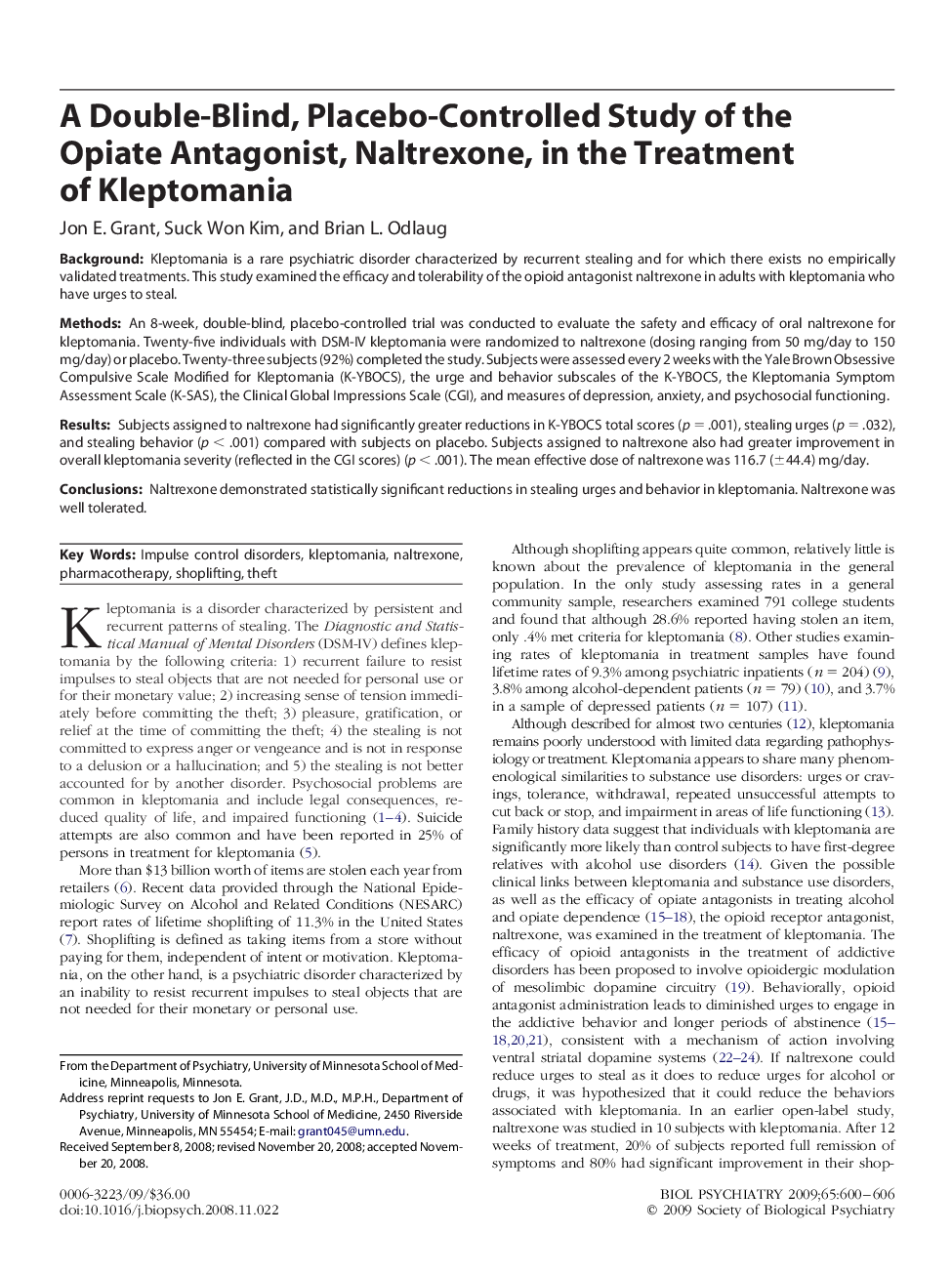| Article ID | Journal | Published Year | Pages | File Type |
|---|---|---|---|---|
| 4179730 | Biological Psychiatry | 2009 | 7 Pages |
BackgroundKleptomania is a rare psychiatric disorder characterized by recurrent stealing and for which there exists no empirically validated treatments. This study examined the efficacy and tolerability of the opioid antagonist naltrexone in adults with kleptomania who have urges to steal.MethodsAn 8-week, double-blind, placebo-controlled trial was conducted to evaluate the safety and efficacy of oral naltrexone for kleptomania. Twenty-five individuals with DSM-IV kleptomania were randomized to naltrexone (dosing ranging from 50 mg/day to 150 mg/day) or placebo. Twenty-three subjects (92%) completed the study. Subjects were assessed every 2 weeks with the Yale Brown Obsessive Compulsive Scale Modified for Kleptomania (K-YBOCS), the urge and behavior subscales of the K-YBOCS, the Kleptomania Symptom Assessment Scale (K-SAS), the Clinical Global Impressions Scale (CGI), and measures of depression, anxiety, and psychosocial functioning.ResultsSubjects assigned to naltrexone had significantly greater reductions in K-YBOCS total scores (p = .001), stealing urges (p = .032), and stealing behavior (p < .001) compared with subjects on placebo. Subjects assigned to naltrexone also had greater improvement in overall kleptomania severity (reflected in the CGI scores) (p < .001). The mean effective dose of naltrexone was 116.7 (±44.4) mg/day.ConclusionsNaltrexone demonstrated statistically significant reductions in stealing urges and behavior in kleptomania. Naltrexone was well tolerated.
